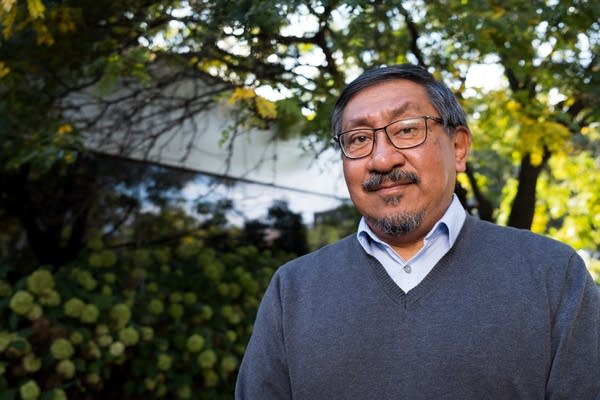Profile: Historian Rodolfo Gutierrez says too many people stereotype Latinos as outsiders
Gutierrez says Latinos have a long, proud history in the U.S. and Minnesota.

Rodolfo Gutierrez, executive director of Hispanic Advocacy and Community Empowerment through Research, outside of his St. Paul office on Wednesday. Gutierrez arrived in Minnesota 23 years ago from Mexico to pursue his Ph.D in history.
Evan Frost | MPR News
Go Deeper.
Create an account or log in to save stories.
Like this?
Thanks for liking this story! We have added it to a list of your favorite stories.


